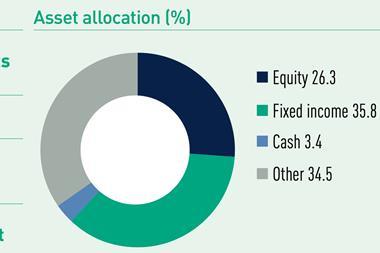Dutch pension funds may well have to run two administration systems in parallel for years to come, should the New Social Contract (NSC) – a new political party in the Netherlands – gets its way and pension funds are forced to ask permission to their members in order to convert defined benefit (DB) accruals to defined contribution (DC) pensions.
This will likely further delay the pension transition and could increase costs by up to 40%, industry officials have found.

Currently, employers and trade unions are in charge of deciding whether to move DB accruals to the new system.
NSC, which is currently leading polls ahead of parliamentary elections next week, wants to change this by making it mandatory for each pension fund to organise a referendum on this.
How big a threshold for conversion NSC wants to put up is not clear, but its leader Pieter Omtzigt, currently an independent member of parliament (MP), proposed an amendment to the pension law last year that required a majority of at least 60% of both pensioners and active members to agree to a proposed conversion.
On top of that, he also proposed that conversion could not take place anyway if turnout were lower than 60%.
Delay
A further delay to the pension transition deadline, which has already been pushed forward several times over the last few years, would indeed be “unavoidable” if the new pension law is changed to make it more difficult for pension funds to convert DB accruals to DC, said Arno IJmker of Eraneos, a consultancy that advises pension funds on administration.
“I would almost say that nobody realises the consequences of such a move,” IJmker said. But one thing is certain: “1 January 2028 as the final transition date will not hold.”
If pension funds do not convert accruals to DC, they will have to keep running a DB administration system in addition to that.
“This will not make things easier, as in practice it means you will run a double service book,” IJmker continued. The move to the new DC system had been seen as a chance “to standardise as many things as possible and clean up old dirt,” he added.
“This is also what you’re seeing in practice now. Pension funds have many options to choose from, as long as they choose a black T-Ford, so to say,” he added.
Rising costs
Admin costs will be between 10% and 40% higher if funds are blocked from converting accruals, according to IJmker. “How much costs will go up, I don’t know. But it will be a substantial rise,” he said.
APG runs the pension administration of eight funds, that in principle will all convert accruals to DC. If this for whatever reason would not happen, it would lead to “substantially higher costs for administration and communication, and a higher propensity for mistakes,” according to a spokesperson for the pension administrator.
APG would pass on these increased costs to its clients, which include civil service scheme ABP and construction sector fund BpfBouw.
The latter fund would have to shoulder “millions of euros in additional costs” if it cannot convert DB accruals into DC, the construction section of trade union FNV wrote in the November edition of its pension magazine.
“Therefore it is important that accruals will be moved collectively to the new system in order to prevent BpfBouw from having to run two funds and two administrations,” it added.
ABP president Harmen van Wijnen already branded NSC’s plan “an ill-fated idea” last week, warning it may even be impossible to carry out such changes as pension funds and their administrators have already started implementing the new pension law based on the idea that pension funds would move to DC collectively.
Agnes Joseph, former actuary for Achmea Pension Services and an MP candidate for the NSC party, believes costs will not rise as much as the doomsayers predict because many pension administrators will continue to administer DB arrangements in the foreseeable future.
After all, some pension funds will close and keep their accruals in a DB setting. Achmea is an example of such a firm. However, whether NSC’s proposed changes would indeed have little effect on Achmea is unclear.
“We are not going to speculate about what-if scenarios and how that would work out administratively,” an Achmea spokesperson told IPE.
According to IJmker, however, it is quite clear that many more pension funds would seriously consider closing down if they cannot convert accruals to DC.
“I’ve been sitting down with many pension funds recently, and I haven’t heard of one that considers to continue even if they would not be able to convert accruals,” he said.
That would be great news for insurers, and possibly also for pooled pension funds (APFs), he added.
The latest digital edition of IPE’s magazine is now available























